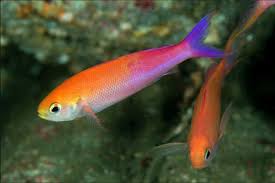Dragons in Chinese Festivals: Symbols of Luck and Blessings

In Chinese culture, the dragon is not just a mythological creature; it holds deep significance as a symbol of power, wisdom, and good fortune. Central to many traditional festivals, the dragon is seen as a bringer of luck, prosperity, and blessings. Its majestic presence is felt across the country, especially during key celebrations that unite communities and honor centuries of rich cultural traditions. This article delves into the role of the dragon in Chinese festivals and its symbolism as a harbinger of luck and blessings.
The Dragon as a Symbol of Luck and Blessings
The dragon in Chinese culture is widely regarded as a creature that can influence the forces of nature, guiding elements such as water, weather, and fertility. It is said to possess the ability to drive away evil spirits, ensuring good health and fortune. This is why the dragon is associated with blessings and considered a protector against misfortune. In Chinese cosmology, the dragon also represents the balance between the earth and heaven, playing an essential role in sustaining harmony in the world.
Throughout history, the dragon has been an enduring symbol of prosperity. It is said to possess the power to bring good fortune to individuals and communities alike. The presence of the dragon in various cultural practices—ranging from religious rituals to secular festivals—reinforces its image as an emblem of abundance and blessings.
The Role of the Dragon in Chinese New Year Celebrations
One of the most famous celebrations where the dragon plays a pivotal role is the Chinese New Year (also known as the Spring Festival). This annual event, which marks the beginning of the lunar new year, is a time for families to gather, honor ancestors, and wish for a prosperous year ahead. Among the many customs observed, the Dragon Dance is perhaps the most visually striking and culturally significant.
The Dragon Dance, performed during Chinese New Year festivities, is an iconic display of acrobatic skills and teamwork. The dragon, typically represented by a long, serpentine puppet carried by a team of dancers, symbolizes strength, vitality, and good fortune. The dance is believed to drive away evil spirits and bring blessings to the people. The movement of the dragon, often accompanied by drums, cymbals, and firecrackers, is a spectacle designed to bring in the new year with joy and prosperity.
In Chinese folklore, it is believed that the dragon’s appearance during the new year celebrations ensures that luck and blessings flow into the homes and businesses of those who participate. The dragon’s graceful movements are a symbol of the arrival of a new year filled with positive energy and opportunities for success.
The Dragon Boat Festival: A Celebration of Protection and Good Fortune
Another prominent festival where the dragon takes center stage is the Dragon Boat Festival (also known as Duanwu Festival), held on the 5th day of the 5th month of the lunar calendar. This festival is dedicated to the ancient legend of Qu Yuan, a patriotic poet who drowned in the Miluo River in protest against corruption in the government. To honor his memory, dragon boat races are held, and it is believed that the dragon boats help protect people from evil spirits and misfortune.
The dragon boats themselves are decorated with vibrant dragon motifs, and the races are viewed as a form of both entertainment and spiritual protection. The dragon is believed to possess the power to ward off negative influences, and the competition serves as a way to invoke good fortune for the participants, their families, and their communities.
Like the Chinese New Year celebrations, the Dragon Boat Festival is a time for families to come together, celebrate with food (such as zongzi, sticky rice dumplings), and express gratitude for health, safety, and prosperity. The symbolism of the dragon in these rituals continues to inspire hope and blessings, reinforcing the connection between the human and the divine.
The Dragon in Other Traditional Chinese Festivals
Beyond the Chinese New Year and Dragon Boat Festival, the dragon is also an important figure in several other traditional Chinese festivals, each carrying its own unique symbolism of blessings and good fortune.
- Lantern Festival: Celebrated on the 15th day of the Chinese New Year, the Lantern Festival is a colorful and joyful event marked by lantern displays and folk performances. Dragon-shaped lanterns are often seen in parades and street decorations, and they are believed to bring good fortune for the year ahead. The lanterns are a representation of light, hope, and the guiding power of the dragon to dispel darkness and usher in prosperity.
- Mid-Autumn Festival: This harvest festival, celebrated on the 15th day of the 8th lunar month, focuses on the gathering of family and giving thanks for the harvest. While the dragon is not as prominent in the physical aspects of the celebration, its influence is still felt in the many traditional customs that emphasize the connection between the earth, heaven, and the cosmos. In some regions, dragon dances and other festivities are incorporated into the celebration as a way to invite blessings for the future.
- Double Ninth Festival: Also known as Chongyang Festival, this celebration occurs on the 9th day of the 9th month and honors the elderly and promotes longevity. The dragon is associated with immortality and the concept of eternal life. Some communities perform dragon dances or place dragon symbols in their homes to invite health and long life for their elders.
The Dragon in Modern Chinese Celebrations
Even in contemporary China, the dragon continues to be a powerful symbol of good fortune and blessings. In major cities, large-scale dragon parades are a common feature during public holidays and state celebrations, drawing crowds and symbolizing national unity and prosperity. From company logos to wedding decorations, the dragon’s influence is also felt in modern life, where it continues to serve as a symbol of strength and success.
The use of the dragon in contemporary art, advertising, and branding reinforces its ongoing cultural relevance. Its association with luck, success, and protection continues to make it a beloved and respected figure in Chinese society, and it plays a central role in the cultural identity of the nation.
Conclusion: The Dragon as a Guardian of Good Fortune
The dragon in Chinese festivals is much more than a mythical creature; it is a symbol of protection, strength, and the promise of a prosperous and harmonious future. From the lively Dragon Dance during Chinese New Year to the dramatic boat races of the Dragon Boat Festival, the dragon continues to bring luck, joy, and blessings to millions of people in China and beyond.
Its presence in Chinese culture is a testament to the enduring belief in the power of good fortune and the collective hope for a better tomorrow. As festivals evolve and adapt, the dragon will always remain an integral symbol, ensuring that its legacy as a protector and bringer of blessings endures for generations to come.

